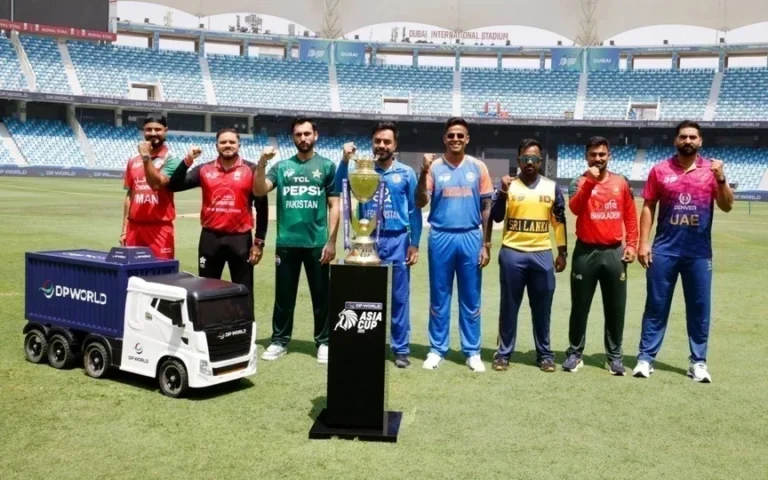- Initial Boycott Threat: The BCCI, along with Sri Lanka, Afghanistan, and Oman cricket boards, initially threatened to boycott the ACC meeting in Dhaka due to strained India-Bangladesh political relations and concerns over the ACC’s insistence on holding the meeting in Dhaka, led by Pakistan Cricket Board (PCB) chairman Mohsin Naqvi.
- Compromise: Reports confirm the BCCI and SLC will now participate virtually, ensuring their input in key decisions while avoiding physical presence in Dhaka, a move driven by geopolitical sensitivities and logistical concerns.
- Context: The Asia Cup 2025, scheduled for September 10–28, 2025, in the T20 format, is a vital preparatory event for the 2026 T20 World Cup. India is the designated host, but India-Pakistan tensions make a neutral venue like the UAE likely.
Impact of BCCI’s Virtual Participation
1. Ensuring Tournament Viability
- Legitimacy of Decisions: The ACC constitution requires participation from key members like the BCCI for resolutions to be binding. Virtual attendance ensures the BCCI’s veto power and influence remain intact, preventing invalidation of decisions made in Dhaka.
- Avoiding Cancellation: The BCCI’s boycott could have derailed the tournament, as its absence would reduce financial and competitive appeal (India-Pakistan matches are a major draw). Virtual participation signals commitment to keeping the Asia Cup on track.
- Hybrid Model Progress: The BCCI’s presence, even virtual, facilitates discussions on a hybrid hosting model, with Pakistan’s matches likely in the UAE or Sri Lanka, mirroring arrangements for the 2023 Asia Cup and 2025 Champions Trophy.
2. Financial and Commercial Stability
- Sponsor and Broadcaster Confidence: The Asia Cup generates significant revenue through broadcast deals and sponsorships. The BCCI’s participation reassures stakeholders, reducing the risk of financial losses from a potential cancellation or diminished tournament appeal.
- Market Appeal: India’s involvement ensures high viewership, particularly for India-Pakistan clashes, which are crucial for advertisers and broadcasters.
3. Geopolitical Navigation
- Balancing Tensions: Virtual participation allows the BCCI to engage without compromising on India’s stance against traveling to Bangladesh amid political unrest. It also sidesteps direct confrontation with the PCB, which had pushed for Dhaka as the meeting venue.
- Neutral Venue Push: The BCCI can advocate for a neutral venue (e.g., UAE) during the meeting, leveraging its influence to ensure a feasible hosting plan that accommodates India-Pakistan sensitivities.
4. Logistical and Scheduling Clarity
- Finalizing Plans: Virtual participation enables the BCCI to shape the tournament’s schedule, format, and logistics, ensuring alignment with India’s domestic and international cricket commitments.
- Team Preparation: With the Asia Cup serving as a precursor to the 2026 T20 World Cup, India’s input ensures the tournament’s structure supports team readiness.
Challenges and Risks
- Limited Influence: Virtual participation may weaken the BCCI’s ability to dominate discussions compared to in-person attendance, potentially allowing the PCB or other members to push agendas less favorable to India.
- Geopolitical Friction: While virtual attendance avoids a direct boycott, underlying India-Pakistan and India-Bangladesh tensions could still lead to disputes over hosting or other decisions.
- Technical Issues: Connectivity or procedural hiccups during virtual participation could hinder effective communication, risking misalignments in decision-making.
- Perception of Compromise: The BCCI’s U-turn might be seen as a concession to the ACC and PCB, potentially affecting its negotiating leverage in future disputes.
Potential Outcomes
- Tournament Proceeds with Hybrid Model:
- The most likely scenario, with the BCCI’s virtual input securing a UAE-based or hybrid model, ensuring all teams, including Pakistan, participate.
- Schedule finalized for September 2025, with neutral venues for high-stakes matches.
- Stalemate on Key Issues:
- If disagreements persist (e.g., on venue or format), the tournament could face delays, though the BCCI’s participation reduces this risk.
- Alternative Plans:
- If no consensus is reached, the BCCI might push for a smaller event, like a tri-series with Sri Lanka and another team, though this is less likely given commercial pressures.
The BCCI’s shift to virtual participation is a pragmatic move that significantly boosts the chances of saving the Asia Cup 2025. It ensures the BCCI’s influence in critical decisions, maintains financial and competitive viability, and navigates geopolitical complexities. While challenges like limited in-person leverage and ongoing tensions remain, this compromise makes a hybrid-model tournament in September 2025 feasible, preserving the event’s role as a key T20 World Cup precursor. The meeting’s outcomes will be pivotal, but the BCCI’s engagement is a decisive step toward success.








